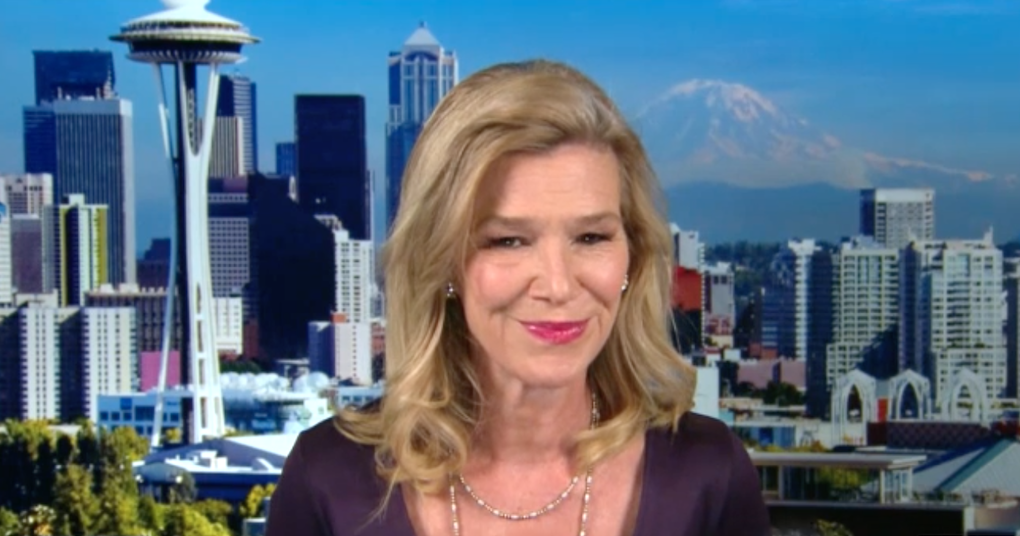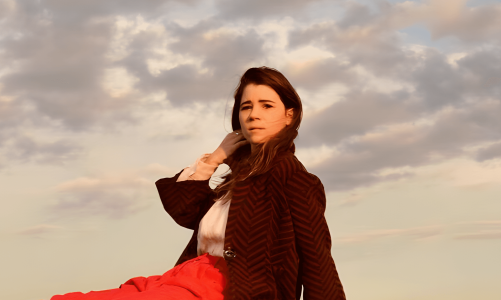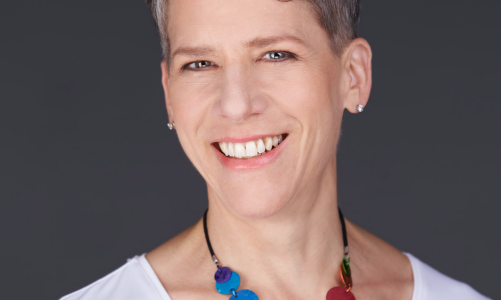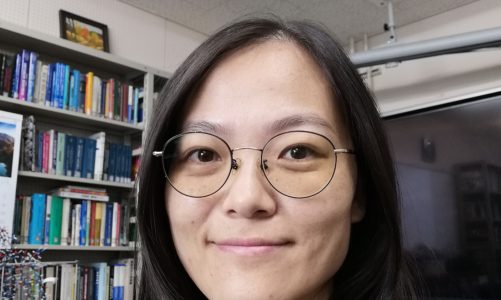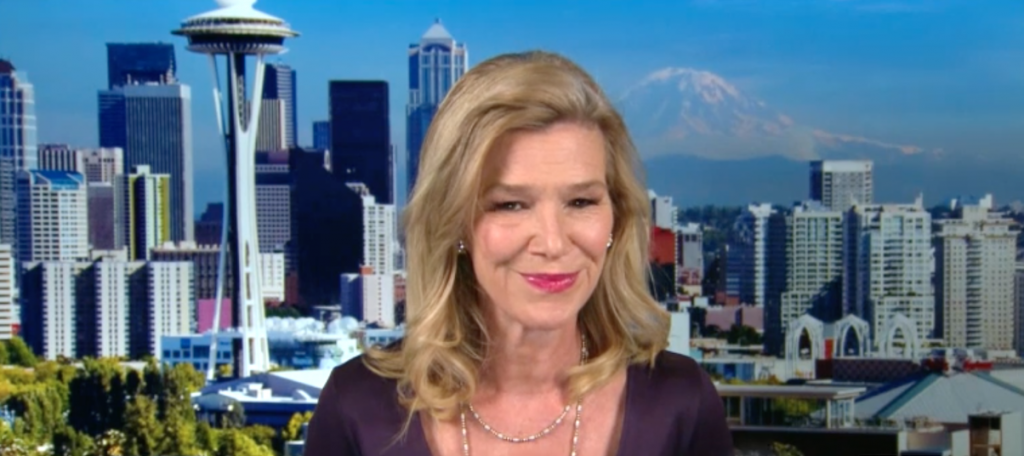
Anne Bremner is a defense attorney and one of the world’s most notable legal analysts, having covered the murder of Lacy Preston, The People vs. Michael Jackson, and the trial of Casey Anthony, among many others. A brief selection of the networks she has appeared on include CNN, Fox, CBS, NBC, MSNBC, and the BBC. Prior to her work in the private sector, she served as a deputy criminal prosecuting attorney in King County, Washington from 1983 to 1988. In 2008, friends of college student Amanda Knox enlisted Bremner as an advocate for Knox, who was charged with murdering her roommate while studying abroad. Bremner made many unpaid media appearances to garner support for Knox, fundraise for her overseas defense, and encourage her release to the United States. Knox was ultimately acquitted of all charges. Bremner is the author of upcoming book Amanda Knox and Justice in the Age of Judgment, expected in September of 2022. She is currently an attorney at Frey Buck, P.S. in Seattle, Washington and serves on the board of directors as State Co-chair for the International Academy of Trial Lawyers.
*CW: This interview contains discussion of violent crime including sexual assault.
Amelia Spalter: Once a case has landed in the media is it possible for it to be decided entirely in the courtroom without any influence from the court of public opinion?
Anne Bremner: I think it is impossible with the way things function in the current climate. What we need to be able to do is to have transparency, including open courtrooms with [full un-editorialized footage of the trial] so that everybody can see what’s happening [and not just the bits the media feels is necessary to show them.] I think the media is extremely biased. Anyone who has not watched the Netflix piece on Amanda Knox should watch it. There was this guy, Nick Pisa, who was a journalist for The Daily Mail. And he basically said, “Anything that was salacious, anything that was over the top, I got it in The Daily Mail. That was my job.” That’s the way Amanda Knox was put forward to the public. Rather than headlines about the legal proceedings, you’d read that she was going to break out of jail so she could vote for Obama, you’d read that there was a group in the US sending Marines to steal her from Italy, and nobody batted an eye.
The way that the media functions now, due to social media, involves folks who aren’t even journalists just picking up stories and repeating them. There are doctored photos of blood in her bathroom all over the internet. There are reports she cleaned everything with bleach. There’s no evidence of bleach! This is the kind of thing that permeates the media. The Amanda Knox case was one of the first international homicide stories in the age of the internet and social media. There was so much vitriol. People threatened to kill her, people even threatened to kill me.
How do you strike a balance between your own legal insights and personal thoughts, versus the facts as they’re known so far, when serving as a legal analyst for a news story?
It’s very, very, hard and I have sympathy for the press. We all have inherent biases and in the trials that I’ve covered, like Michael Jackson, I was at that trial for six months talking about it daily. I knew what I thought. I didn’t think he’d be convicted. But I had to be very careful in terms of just laying things out objectively and then talking about the legal issues, because that’s the way it’s supposed to be done. In the Amanda Knox case, there were factions in the press. There were people in the press that were against her and there were people in the press that were supportive of her, and it shouldn’t be that way.
There was a dearth of evidence. There was a bra clasp and there was a kitchen knife, both of which supposedly had forensic evidence on them. The bra clasp had mixed DNA that turned out to be false. The knife had Amanda’s DNA on the handle and then they said it had Meredith’s DNA on the tip. The courts in Italy can order an evaluation from independent experts of forensic evidence. In the appeal, they did that. And those experts appointed by the judge said that evidence was compromised, contaminated, and inadmissible. That is why she was acquitted. So that was the case. There was nothing else, nothing. [The case was brought on] that thought she acted in a strange manner. They didn’t think she acted sad enough about Meredith. Other than that, the [compromised] evidence was the whole case. And yet, at the time, you could’ve talked to my mother and she’d say Amanda was guilty.
Before television you worked as a criminal prosecutor. Did any cases from that time stick with you as you moved on to these new phases of your career?
The one that stuck with me the most was a murder case where a young man shot his best friend. They were target practicing on a tree. The victim was this kind of Doogie Howser kid: everyone loved him. He was an only child. His parents would sit in court every day wearing these matching bowling jackets and it… it just broke my heart. I would cry every night thinking I just couldn’t do this anymore. It was so senseless. The friend that shot him just wanted to see what it felt like to kill someone before he was eighteen.
But then I went on to represent police officers and departments. There was a girl that was fifteen and she had killed her grandpa with garden tools. She pled insanity. Her feet didn’t even touch the floor from the chair in the courtroom. Her name was Peace, of all names. That one always stuck with me. She was always very friendly to me, which at the time was really weird.
I had a case of a little girl who was molested by her dad, and they lived just a few blocks from me. He was acquitted. I used to take that little girl on walks in my neighborhood, so I felt like I really let her down. Once that case was over, the mom was walking along when a freak accident happened. A ladder went off of a truck and partially decapitated her. The hospital called me because, while she was barely clinging to life, the dad was there trying to get the kids.
That was one of the most tragic ones I saw. The eruption of a family… To think that he would go in there when she’s dying to try and get those kids just blows my mind. I was all the way in Eastern Washington when I got the call, but I drove right over the mountains and had the kids placed elsewhere.
Which of your cases did you find the most disillusioning or difficult to move past?
I had many difficult rape cases [as a prosecutor]. But I had one guy that was super scary. He would jump out of the bushes with a knife and rape women joggers. He had these hideously scary light eyes, so I would always try and move so he couldn’t look at me. I didn’t have a lot of evidence against him, but they convicted him. Right after that I had a case of a guy who posed as a Green River detective and picked up prostitutes—again, claiming to be a detective—then raped them. He had burned down a building in Florida where, I think, ten people died. And then he called in to report the fire like he was the hero. We tried that case. He attempted to fire his lawyer and hire me, one of the prosecutors, as his lawyer. He said he was with the rock group Foreigner, and he needed to get out of court to go play his gigs. Ultimately, he was convicted. He was really creepy. When I picked the jury the defense lawyer said, “Can you look him in the eyes and presume him to be innocent?” And a lot of the jurors said, “No.”
When did you realize that being a victim advocate was your professional calling—was there any defining moment that made you say, “This. This is why I’m a lawyer.”?
It happened really early. I didn’t really want to go to law school, but my dad thought it was a good idea. I graduated [law school] early and went to work for a judge. I started watching trials from court and I was like, “This is what I want.” Every time I got a conviction on a tough case, I’d have that same feeling, like, “This is where I want to be.” I wanted to be part of this system, I wanted to be part of the solution.
I learned so much from my judge. He was the smartest judge in King County, he was wonderful. He drove a Camaro with flames down the side. He was kind of a nut. Working for him, it hit me, “This is the side I want to be on”, the prosecution. Then one day the prosecutor’s office needed new people, because it turned out that a bunch of their people didn’t pass the bar. The lead prosecutor summoned me, traded a person into my job where she didn’t have to be bar certified, and that was it. I was a prosecutor.
What is the most unexpected area of civilian life where your legal skills have come in handy?
Helping my friends and family. Mostly just things like helping someone get a dog back from the person that took it. But I had a friend who was getting stalked by this guy, and they were trying to subpoena her out of state on a case, and it was really rewarding to be able to get her un-snagged from that. [It’s ultimately just] being able to step in when someone is in the midst of something where a lawyer could help.
Outside of lawyering, you have managed to find time to serve as an advocate for cats with cerebellar-hypoplasia (CH). How did you get involved in this area of advocacy and what do you want people to know about the cause?
[My cat Jimmy had CH] and now I am in a support group on Facebook with tens of thousands of people that have cats with this condition. People say, “This could be the best cat you’ve ever had,” and I agree. [My cat with CH] is the best. I [got involved on a larger scale] because I like advocating for the underdog, I am equipped to show up for the victims, and pets in particular rely on us. Animals are already vulnerable, [even without a condition like CH]. These cats can be euthanized when they’re still just kittens because people assume they’re so damaged, when actually they’re something so special and can still love you unconditionally.
Is there any advice you wish would be automatically given to everyone who is even tertiarily involved in a criminal investigation?
Don’t talk. Not just with the police. I also do not want my clients talking to the press, no matter what, at least until we’ve got a sense of where we are. Look at the Prince Andrew-Jeffrey Epstein case. Prince Andrew went and did that BBC interview, then his alibi witness came out and said, “No, he wasn’t staying with me.” Then he says, “I don’t sweat,” and they have pictures of him sweating. It’s unbelievable. Then he says, “I was in New York, but I was also someplace else.” Well, the someplace else was eight minutes from Epstein’s place. So, why did he do that interview at all?
At what point should one involved with a criminal investigation, even if just as a witness or bystander, consider engaging their own lawyer?
Do it right away. Because of the media and TV shows, I think everybody gets that [it’s] always smart to talk to a lawyer. You don’t know what the potential legal consequences of your situation are [even if you know you’re innocent.] You don’t know what might already be out there. Even I’ve hired a lawyer before, and I am really glad I did.
If involved in a criminal investigation, should one wait until they’ve been formally charged to contact a lawyer so as to avoid seeming guilty?
No, no, no. The best thing you can do is talk to a lawyer. Sometimes you do also want to talk to the cops, it really depends. Sometimes speaking with the police can ward off further investigation. But you don’t know until you talk to a lawyer and understand what you’re facing.
There are a lot of resources out there, both civil and criminal, for referrals to talk to a lawyer. There are so many places where you can get ahold of a lawyer quickly, like Avvo.com, or even Super Lawyers. Lawyers are available through so many different organizations, online or on the phone, right away.
One of the stand-out qualities your analysis is noted for is its ability to bridge the gap between the legal community and the viewing public. You’ve even said, “I hate to go into legal terms,” before outlining the details of a case. How do you manage to unpack complex court minutiae in a way that is relatable to folks at home?
There’s an Italian word, “sprezzatura,” and it basically means taking complicated things and making them simple. I used to do television like I was talking to my grandma Leonard. She would watch me and then she would tell me, “I got it. I get what you’re saying.” I just try to take things down to the most understandable level without ever dumbing it down as though, “I’m a lawyer and you’re not so you’ll never really know what happened.”
That’s what we have to do for living in trials; take really complicated cases and make them palatable, interesting, and understandable to a jury—sprezzatura. What I’ve always tried to do on TV was give it a higher meaning. Like, “What is my thesis? Is there something we can learn from this?” Like with the Michael Jackson case, “Is celebrity justice an oxymoron?” I try to connect to bigger concepts that people can relate to. It’s important, because, for example, listening to the coverage of Trump’s first impeachment I kept thinking, “My God, could you make it more diffuse?” I don’t want you to tell me whether I’m supposed to love Trump or hate Trump, I just want the facts.
What measures do you think should be put in place to prevent the media from influencing the outcome of legal proceedings by weaponizing public opinion?
We need to start with having open court rooms, televised trials, and complete transparency so that people can see what really happens in a case and make their own decisions. We also need to have targeted education of journalists. There are a few things like this at some universities in the US, but more widespread legal courses to try to get journalists on board with what’s really happening in a courtroom, what is admissible and what isn’t, and why that is the case. We do have benchmark press guidelines and committees all throughout the United States where we try to get along with each other and try to work together towards seeking, reporting, and having the public understand, the truth.
*This interview has been edited for length and clarity.

